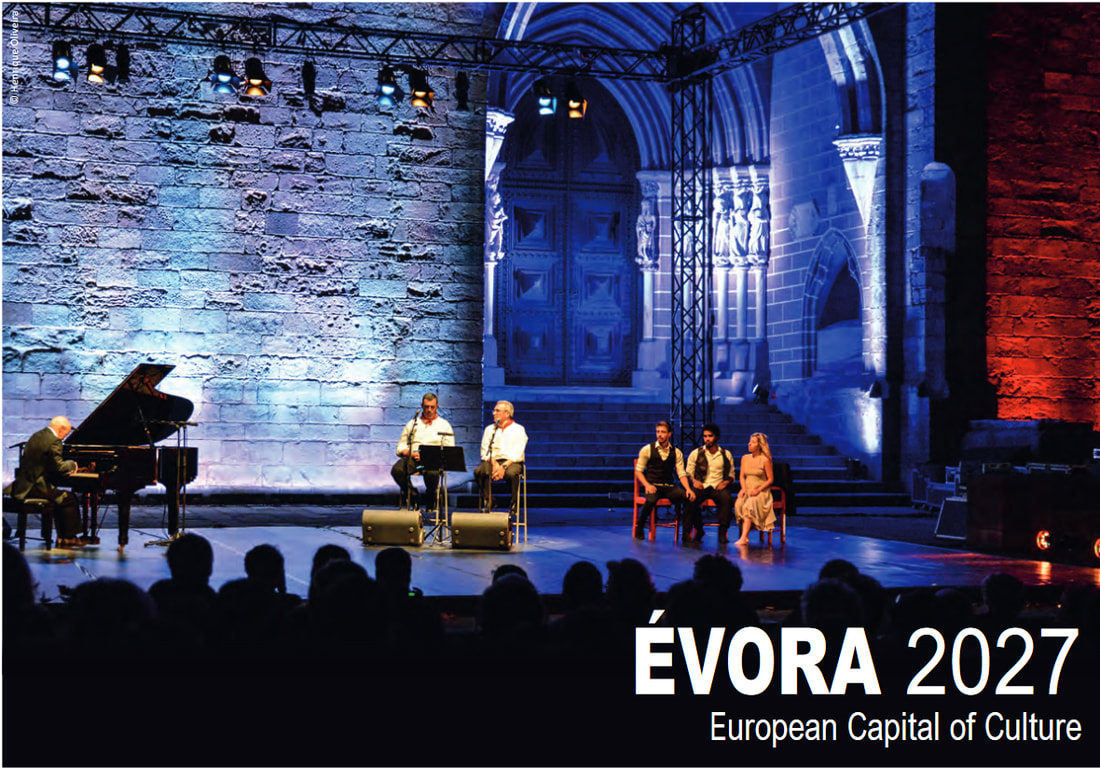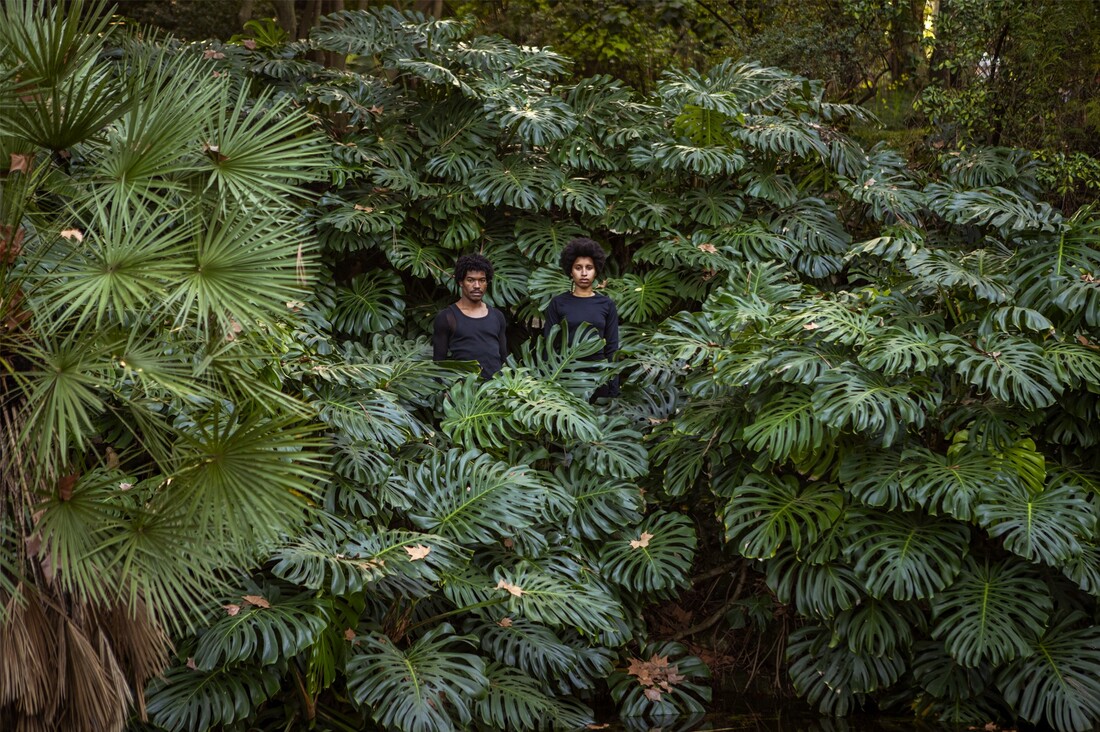Newsletter 261
July 2024
|
After a tsunami of flowers in spring, OBRAS is now surrounded by a prairie of golden grass. The fruit trees gave us a rich harvest and also the artists had fruitful residencies.
In June, residents in OBRAS-Portugal were Marsja Mudde (singer, musicologist; Holland), Ingrid Simons (visual arts; Holland), Charlie Wuehrer (writer; UK, Germany), Kedarnath Awati (composer; India), Derek Spencer (play-writer; USA), Maj Rafferty (writer; Denmark), Lucie Roberts (visual art; Canada), Annick Chevassu (visual art; UK) and Sabine Schol (writer; Austria). In OBRAS-Holland, Margreet den Buurman (art historian), Vincent Kortmann (writer) and Leon Biezeman (writer) had a residency.They are all from Holland. Projects of residents early in 2024 are on the 2024 page. Due to two last-minute cancellations we still have place for residencies at OBRAS-Portugal from 15 August until 25 September. You will find the application form on this page. Derek Spencer (USA) is theatre and film maker, and performer. At OBRAS he was working on an immersive performance entitled Field of Flesh, to be premiered in September 2024 in Chicago. The performance takes to form of a rambunctious immersive meal in which audiences join the actors around a dinner table of inedible food. It will touch issues like familial interdependency, psychic decay, American culinary culture and the relationship between food and death.
At his artist talk, Derek also showed an example of video work he is currently exploring. In this video he shows in direct-address shots a cheerful cacophony of arguing and partying revellers who are escorted out of the nightclub by bouncers. Deeper layers in this video are about the limits of language, need for control and decision-making paralysis. Derek also started a collaboration with Maj Rafterty. Sabine Schol (Austria) was working on a historical novel on female resistance fighters in WWII. Earlier this year she studied the archives of Venice on this subject. One of the chocking discoveries was that after the war they were treated as if they have been prostitutes rather than freedom fighters.
Sabine also working on PR for the novel she was working on during her residency in 2023 and that will appear in August. It is about Jewish refugees who in WW2 tried to escape Europe via Lisbon. She mixed facts that she discovered in archives in Lisbon and Bordeau (France), with fiction. Part of the fiction is a love story that takes place in Casa Miradouro: the cottage in which she was living during her 2023 residency. On 31 May Marsja Mudde took us for a small walk while singing songs of Hildegard von Bingen (1098-1179) and contemporaries.Marsja named the walk A Musical Pilgrimage.
Program: Nu lat uch lusten also hubsches meres Marien-leich (Marian song) by Frauenlob (ca. 1300) O pastor omnipotens Antiphon from the mystical play Ordo Virtutum, by Hildegard von Bingen (ca. 1150) O dulcis electe Responsory for St. John at Patmos, by Hildegard von Bingen (ca. 1140) Laudemus virgine Maria-themed pilgrims’ song from northern Spain. Anonymous (early medieval). Laude iocunda Sequens for St. Peter (and about music and forgiveness). Anonymous from Limoges (ca. 1100) On Saturday 25 May, 6pm Sophie Tassignon gave a concert in the Big Hall of Foundation OBRAS.
Sophie is singer and composer with a background in jazz. She presented recently composed songs. Some were created during her artistic residency at Foundation OBRAS. One was recorded in an abandoned marble quarry. The lyrics of one song is a poem by the Israeli poet Rachel Back (also an OBRAS resident) that Sophie put to music and did sing in Hebrew. The poem was written in 2001, inspired by Rachel Back’s compassion with the Palestinian people. Sophie did also sing a song in Arabic: a Palestinian folk song from the time of the British occupation (1920-1948) telling that the prison is not forever. Annick Chevassu (UK) decided to use marble and cork as a starting point for her installations and small objects. It resulted in marble slabs used as kind of billboard or as a base for painting figurines, and in pieces of cork with painted geometrical forms, floating in the crown of a tree. When her partner: Paul came over, our shared dinners got a musical element. He is a gifted singer, guitar player. Especially his blues was great.
Charlie Wührer (UK, living in Berlin) is an awarded writer of short stories, but at OBRAS she was working on her debut novel, Princess Court. In her own words: “It is about haunted spaces, guilt, queer and elderly love, care work, sex and friendship. What happens when a place foists its secrets onto strangers? When I wasn't writing, I was swimming, cooking things with clams and chorizo, and reading about haunted houses.”
Charley also gave a beautiful artist talk in which she told among others about living and working with two languages (she is part of a German family in the UK). And she celebrated her birthday, for which a fellow resident, Sophie composed a song. Charlie also exercised her skills in tarot cards reading. |
|








